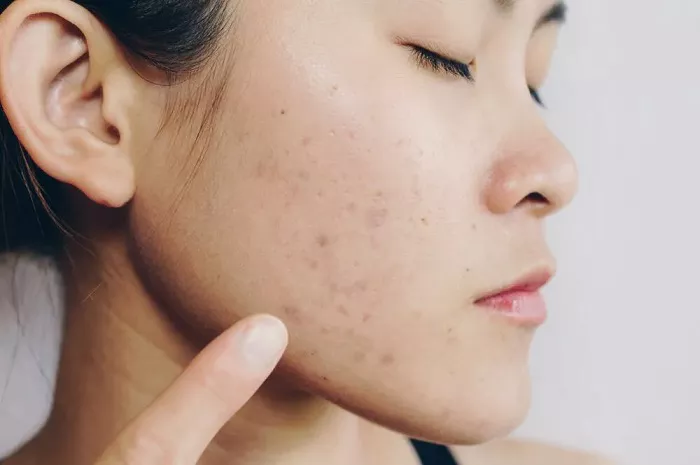Spot scars on the face can be a source of frustration and self-consciousness for many individuals. Whether they result from acne breakouts, injuries, or other skin conditions, these scars can have a significant impact on one’s confidence and overall well-being. However, the good news is that there are various effective strategies and treatments available to help diminish and even eliminate spot scars on the face. In this comprehensive article, we will explore the causes of spot scars, discuss the importance of early intervention, and delve into the most advanced and proven methods for achieving clear, radiant skin.
Understanding Spot Scars on the Face
Spot scars, also known as facial scars or blemishes, refer to the visible marks or imperfections that remain on the skin after a wound, pimple, or skin condition heals. These scars can vary in size, shape, and severity, and they often leave individuals seeking solutions to improve their appearance. Understanding the different types and causes of spot scars is crucial before delving into treatment options.
Causes of Spot Scars
Spot scars on the face can have various origins, and it’s important to identify the specific cause to determine the most appropriate treatment. Here are some common causes of spot scars:
Acne-Related Spot Scars: Acne is a prevalent skin condition that can result in spot scars. When acne lesions, such as pimples or cysts, become inflamed and penetrate deep into the skin, they can damage the surrounding tissue and leave behind scars.
Injuries and Accidents: Traumatic injuries, burns, or accidents that affect the face can lead to scars. Proper wound care and treatment play a crucial role in minimizing their appearance.
Skin Conditions: Certain skin conditions, such as psoriasis, eczema, or dermatitis, can cause spot scars as a result of chronic inflammation and skin damage.
Surgical Procedures: Surgical interventions, including cosmetic surgeries or mole removals, may result in spot scars. The skill of the surgeon and post-operative care can influence scar formation.
Understanding the cause of your spot scars is the first step toward finding the most suitable treatment option.
Early Intervention for Spot Scars
Spot scars are more effectively managed when addressed early in their formation. The key to preventing permanent scars and achieving the best possible results lies in timely intervention.
Importance of Early Treatment
Early treatment can significantly improve the outcome for spot scars on the face. When scars are still in their initial stages, they are more responsive to a variety of treatments. Here’s why early intervention matters:
Promotes Faster Healing: Treating spot scars early can expedite the healing process and reduce the likelihood of permanent scarring.
Minimizes Scar Progression: Spot scars that are left untreated may worsen over time and become more challenging to manage.
Boosts Confidence: Early intervention can help individuals regain their confidence and reduce emotional distress associated with spot scars.
Now that we understand the importance of addressing spot scars promptly, let’s explore the various treatment options available.
Effective Treatments for Spot Scars
There is a range of treatments and procedures available to diminish the appearance of spot scars on the face. The choice of treatment depends on the type and severity of the scars, as well as individual preferences and goals. Below, we will discuss some of the most effective treatments for spot scars:
1. Topical Treatments for Spot Scars
Topical treatments are applied directly to the skin’s surface and are often the first line of defense against spot scars. These treatments can help fade scars and improve overall skin texture.
Silicone Gel Sheets: Silicone gel sheets are a popular choice for spot scar management. They help hydrate the scar tissue and flatten raised scars over time.
Vitamin E Cream: Vitamin E is known for its skin-healing properties. Applying vitamin E cream regularly can help reduce the appearance of spot scars.
Retinoid Creams: Retinoids, derived from vitamin A, can promote collagen production and skin cell turnover, making them effective for spot scar treatment.
2. Minimally Invasive Procedures
In addition to topical treatments, several minimally invasive procedures can significantly improve the appearance of spot scars.
Microdermabrasion: This procedure involves the use of a machine to exfoliate the top layer of skin, helping to reduce the appearance of spot scars.
Chemical Peels: Chemical peels use a chemical solution to remove the outer layer of skin, revealing smoother, less scarred skin underneath.
Dermal Fillers: Dermal fillers can be injected to fill in sunken scars and improve their appearance.
3. Surgical Interventions
For more severe spot scars, surgical interventions may be necessary to achieve the desired results.
Laser Resurfacing: Laser therapy can be used to remove damaged skin and stimulate collagen production, resulting in smoother skin.
Punch Excision: This surgical procedure involves removing individual spot scars and closing the wound with sutures, which can lead to a less noticeable scar.
Skin Grafting: Skin grafting involves transplanting healthy skin to replace damaged scar tissue, often used for extensive or disfiguring scars.
Spot Scars: Prevention and Maintenance
While there are numerous treatment options available, it’s equally important to focus on prevention and ongoing maintenance to ensure spot scars do not return or worsen.
Prevention Strategies
Proper Wound Care: Promptly treating wounds, cuts, or injuries can prevent them from developing into permanent scars. Cleanse, protect, and apply appropriate wound dressings.
Acne Management: If you are prone to acne-related spot scars, consider consulting a dermatologist for effective acne management strategies to minimize future breakouts.
Maintenance Tips
Sun Protection: Protect your skin from UV radiation by wearing sunscreen daily. Sun exposure can darken spot scars and make them more noticeable.
Hydration and Nutrition: Stay well-hydrated and maintain a balanced diet rich in vitamins and antioxidants to promote skin health and healing.
Skin Care Routine: Establish a consistent skincare routine that includes gentle cleansing, moisturizing, and the use of scar-reducing products.
Conclusion
Spot scars on the face can be a challenging issue to address, but with the right approach, individuals can achieve clear, radiant skin. Early intervention, understanding the causes of spot scars, and choosing appropriate treatments are key steps in the journey to scar reduction and improved self-confidence. Whether you opt for topical treatments, minimally invasive procedures, or surgical interventions, there are effective strategies available to help you on your path to spot scar-free skin. Remember that prevention and ongoing maintenance are also essential components of scar management, ensuring that your skin remains healthy and blemish-free in the long term. With the right combination of treatments and care, you can confidently face the world with spot scar-free skin.
[inline_related_posts title=”You Might Be Interested In” title_align=”left” style=”list” number=”6″ align=”none” ids=”2615,2536,2612″ by=”categories” orderby=”rand” order=”DESC” hide_thumb=”no” thumb_right=”no” views=”no” date=”yes” grid_columns=”2″ post_type=”” tax=””]


































